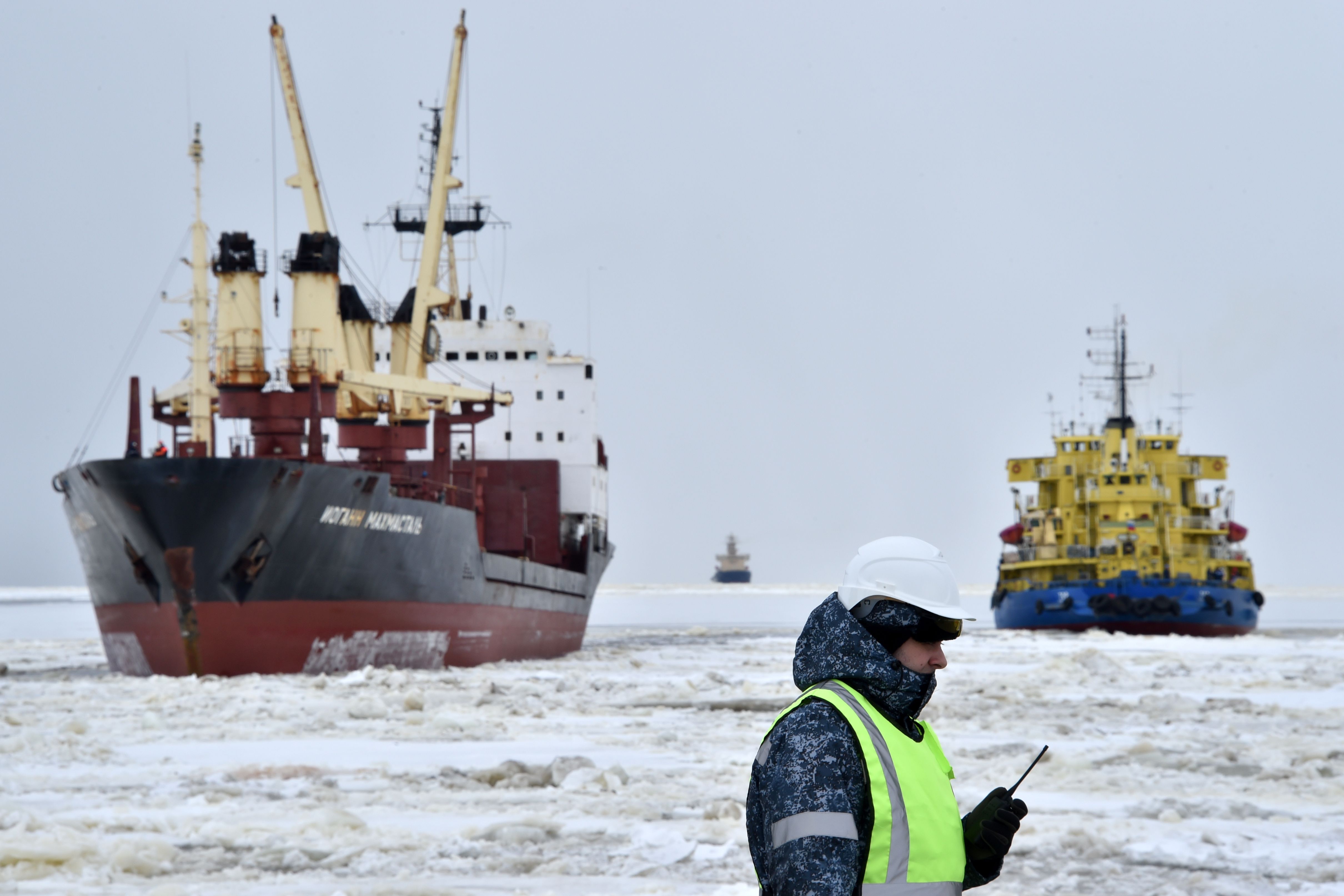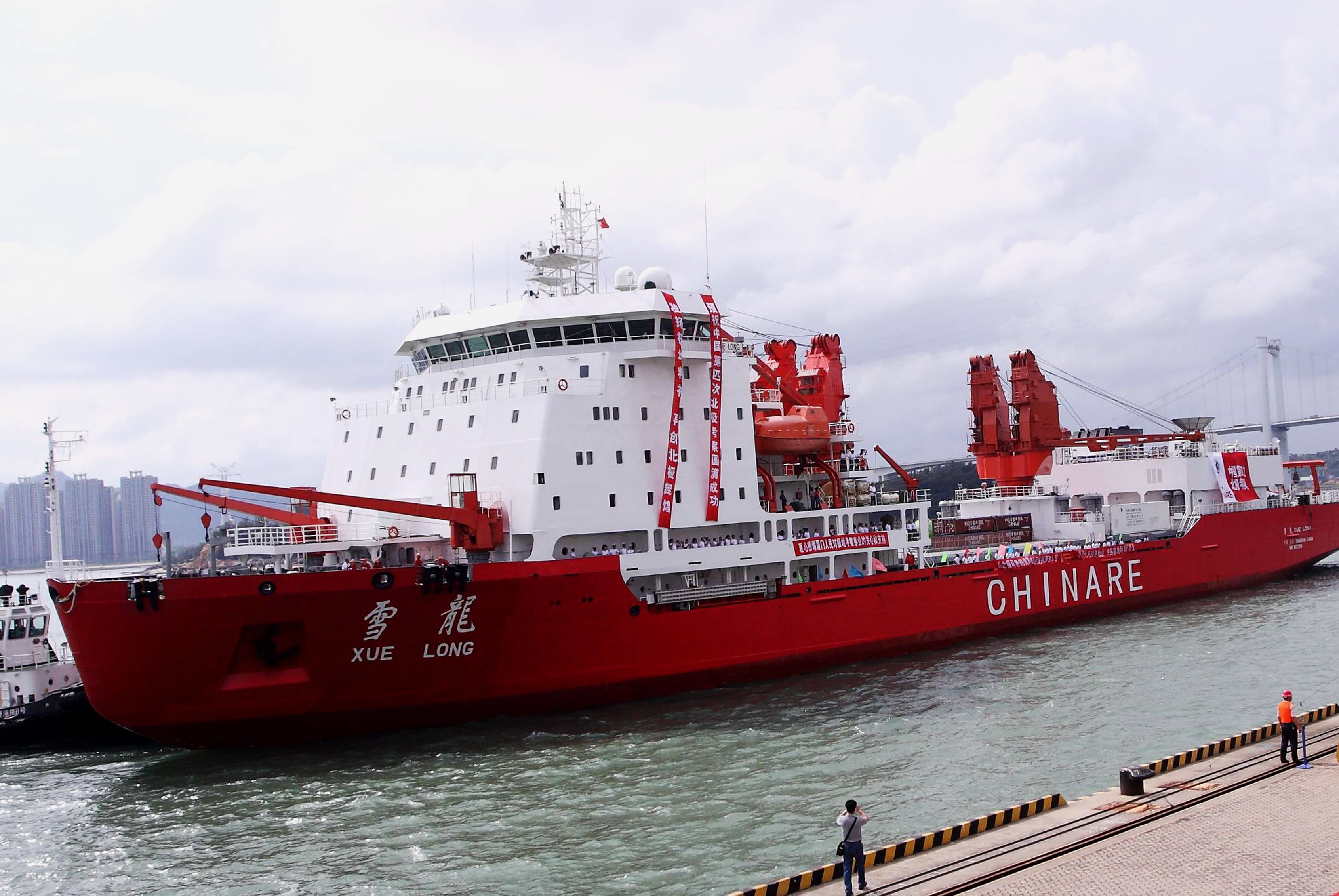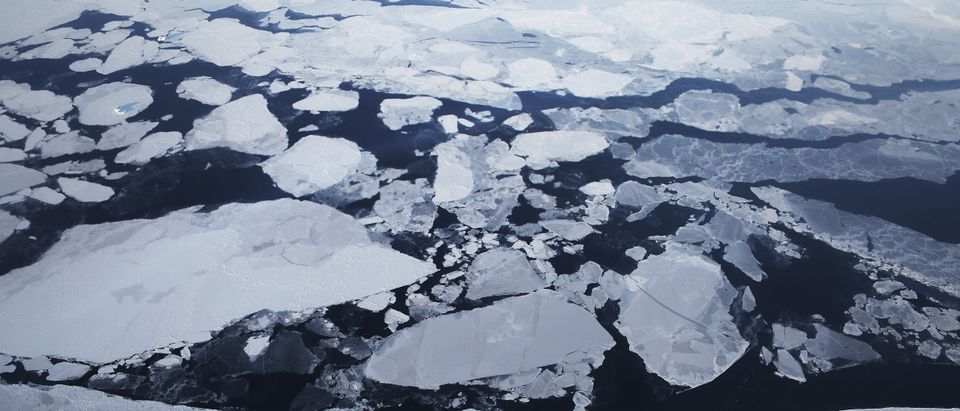The State Department appointed longtime Senior Foreign Service member Jim DeHart as the U.S. Coordinator for the Arctic Region Wednesday.
DeHart holds the rank of Minister Counselor and has been a member of the Senior Foreign Service for 28 years, according to the State Department. He most recently served as a senior adviser in South Korea and previously led the U.S. diplomatic mission in Oslo, Norway.
Eyeing #Russia and #China, @StateDept announced the appointment of U.S. Coordinator for the #Arctic Region Jim DeHart to lead the policy-making & diplomatic engagement on Arctic-related issues to advance U.S. interests in the region related to safety and security. @VOANews pic.twitter.com/4VlhsAqZiX
— VOA Nike Ching 张蓉湘 (@rongxiang) July 29, 2020
A senior State Department official told reporters Wednesday that a more robust regional policy helped further U.S. interests in the Arctic region such as “security, sustainable economic growth, cooperation among Arctic states” and strengthening the “rules-based order in the region.”
The U.S. government has not had a top representative for the Arctic since retired Coast Guard Adm. Robert Papp served as special representative for the Arctic between 2014 and 2017, Reuters reported. (RELATED: Arctic Sea Ice Could Be Holding Back An Economic Boom, Pompeo Says)
Delighted to announce the appointment of Jim DeHart as U.S. Coordinator for the Arctic Region. I am fully confident Jim will lead efforts to advance U.S. interests related to safety and security, sustainable economic growth, and cooperation among Arctic States.
— Secretary Pompeo (@SecPompeo) July 29, 2020
DeHart, during a virtual press conference Wednesday, stated that American foreign policy was in the middle of a “pivot point in our diplomatic engagement [and] approach to the Arctic.” He added that the Trump administration was moving towards a sustained and comprehensive effort to formulate a U.S. strategy in the Arctic.
President Donald Trump advocated for a “strong presence” in the Arctic and Antarctic regions in a White House memorandum released June 9. Among other things, the memo called on the expansion of the U.S. polar fleet by building a “ready, capable and available fleet of polar security icebreakers” by 2029.

Russian icebreaker Tor at the port of Sabetta in the Kara Sea shore line on the Yamal Peninsula (Kirill Kudryavtsev/AFP via Getty Images)
DeHart cited the Arctic’s changing geography and an emerging great power competition with Russia and China as the determinants of the Trump administration’s Arctic push.
Environmental factors have gradually altered the physical geography of the Arctic as sea ice receded 10% over the last 30 years, National Geographic reported. This in turn has made the region more accessible for military and commercial activities.
New maritime routes for trade are opening up on both the Atlantic and Pacific corners of the region. The Arctic also has an abundance of natural resources, including 13% of the world’s undiscovered oil and 30% of undiscovered natural gas, according to the Energy Information Administration.
The Arctic contains approximately 13% of the world’s undiscovered oil resources and about 30% of its undiscovered natural gas resources ????️https://t.co/J1GDe7SQ74 pic.twitter.com/NqdUQ848Nu
— Visual Capitalist (@VisualCap) April 18, 2020
Russia has attempted to use alternative trades routes and create exploration zones for oil and natural gas, Forbes reported. Russia is also ramping up its military presence in the region by building special warships and the country’s Northern Fleet has recently conducted naval exercises. (RELATED: Russia And NATO Ramp Up Military Presence In The Arctic As Ice Recedes)
China launched its Polar Silk Road initiative in 2018 in order to build infrastructure and secure natural resources in the Arctic, according to the Center for Strategic and International Studies. China’s Xue Long naval vessel was also able to navigate three maritime routes across the Arctic in 2017.

The Chinese research vessel and icebreaker Xue Long (STR/AFP via Getty Images)
DeHart added that China was concerning because it — unlike Russia — is not part of the Arctic Council or similar organizations. China also does not border the Arctic and thus dubs itself a “near-Arctic state,” a term the U.S. does not recognize.
He further stated that China could approach the region in a manner inconsistent with principles the U.S. has pursued in the Arctic such as “transparency, good governance, upholding of labor provisions and protection and support for local communities.”
DeHart concluded by outlining his personal priorities, which included increasing coordination across the State Department, expanding the American presence in Greenland and ensuring the U.S. was prepared against threats to the homeland.


